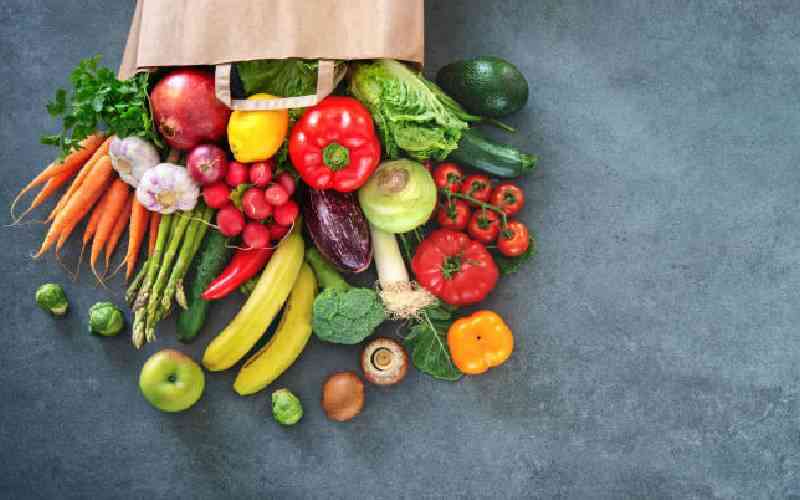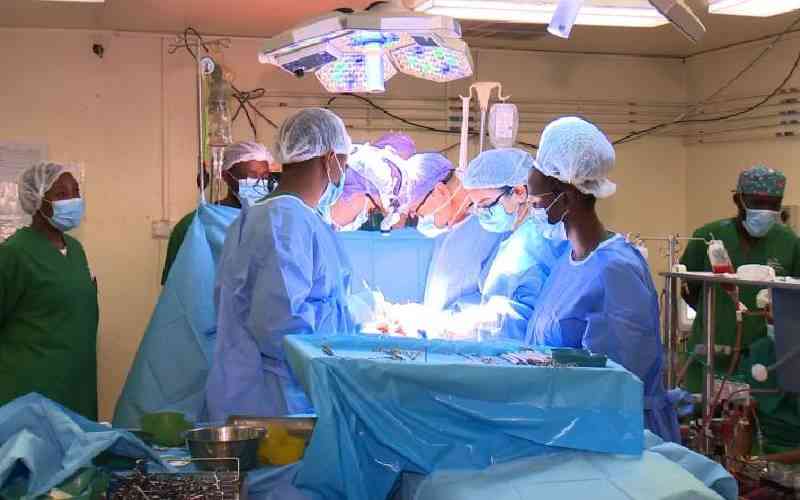
Nutrition experts are sounding the alarm over potential health risks associated with strict vegetarianism, cautioning that those who avoid all animal-derived products may be vulnerable to several preventable conditions.
These include blindness, diarrhoeal diseases, measles, mumps and rubella (MMR), particularly among individuals adhering to a purely plant-based diet.
A study involving 15,000 vegans conducted by researchers at the University of California School of Public Health found that strict vegetarians often consume larger quantities of food to meet their caloric requirements. The research also noted that vegans tend to spend significantly more on non-livestock-derived foods, which they must eat in large volumes to compensate for nutrient shortfalls.
“The argument by vegans that they care for animal welfare and therefore avoid products such as honey, eggs, milk and even blood is not sufficient to justify excluding these nutrient-rich foods,” says Samuel Maina, a nutrition lecturer at Kenya Medical Training College (KMTC) in Nairobi.
“While a plant-based diet can improve health and lower the risk of certain conditions like skin problems, ignoring foods like honey, milk, meat and eggs comes at a cost.”
Maina adds that common ailments such as the flu, colds, runny noses and dry coughs can often be alleviated by consuming a simple spoonful of honey.
Joy Adhiambo, chief nutritionist and manager at Hawi Lounge and Grill on Ngong Road, recommends that vegetarians consider incorporating moderate amounts of animal products into their diets. “Animal foods like milk, eggs and even small portions of meat provide nutrients that would otherwise require very large servings of plant-based alternatives,” she says.
- A family's journey through stroke and healing
Keep Reading
Adhiambo says ageing adults, in particular, need certain nutrients found in animal products to preserve memory, muscle mass and bone health.
“These foods contain essential bio-nutrients critical for growth and brain development,” Adhiambo notes. “For example, the amino acids in milk and eggs have three times the nutritional potency of those found in cereals like rice, maize and wheat.”
Despite concerns over cholesterol, Adhiambo points out that while eggs are high in cholesterol, they have not been shown to increase the risk of cardiovascular disease and may, in fact, raise levels of beneficial high-density lipoprotein (HDL).
Adhiambo also highlights disparities in global consumption. “Average meat, milk and egg consumption is significantly higher in European Union countries than in sub-Saharan Africa,” she says. This is concerning, given that studies show introducing eggs early in children’s diets can reduce stunting by up to 50 per cent and improve overall growth and nutrition markers.
However, she cautions that while animal milk is typically more bioavailable than plant-based foods, it contains lower amounts of iron and zinc—important nutrients for infants. Processed meats, when consumed excessively, may also pose health risks due to harmful fats.
Maina notes that nutritional needs vary throughout life. “Pregnancy and lactation require significantly more energy and nutrients to support a child’s growth. Infants and young children need foods with high nutrient density and bioavailability,” he says. Adhiambo adds that school-aged children and adolescents also have high physiological demands to support neurological and hormonal development, which can be met through livestock-derived foods.
Young children, due to their small body size and limited nutrient stores, require a steady supply of the bio-nutrients found in animal foods, according to Maina. These foods are also essential during pregnancy and lactation to meet increased nutritional demands.
Dr Steve Waluande, a molecular biologist, points out that individuals who consume eggs, milk, honey or cooked blood are not true vegans but rather ovo-vegetarians. “Strict vegetarianism can result in deficiencies of key nutrients such as protein, omega-3 fatty acids, vitamin B12 and riboflavin (vitamin B2),” he warns. “A well-planned diet is essential to meet the body’s needs and maintain good health.”
He further cautions against overconsumption of processed carbohydrates, which can lead to mineral deficiencies (calcium, iron, zinc) and dangerously low blood pressure. “Iron deficiency can result in anaemia, which negatively affects fertility and pregnancy outcomes,” Waluande adds.
In Kenya, undernourishment contributes to stunting in around 22 per cent of children, with many women suffering from anaemia due to iron deficiency.
More flexible
Both Adhiambo and Waluande stress that vegetarian diets must be carefully planned to minimise risks and maximise benefits. “One of the main issues with strict vegetarianism is that some essential nutrients are extremely limited or entirely absent,” Adhiambo says. The risk of deficiency is greatest among vegans who practise self-imposed dietary restrictions, especially pregnant and lactating women.
A report published in The Lancet highlights the nutritional challenges faced by vegans, including slower growth rates and greater vulnerability to illness. Vitamin B12 deficiency is particularly common, as it is not found in plant foods.
Experts urge that strict vegetarians should consider being more flexible with their diets. Vitamin B12 and calcium supplements are especially critical for breastfed infants of vegan mothers. Studies consistently show that vegans have higher rates of iron deficiency anaemia compared to non-vegetarians, and that animal foods significantly enhance iron absorption.
Other international studies have reported cases of rickets in vegan adolescents and osteoporosis in vegan mothers with multiple children. “Strict vegetarians may also suffer from deficiencies in vitamins A and C, which can lead to conditions such as scurvy,” warns Dr Waluande.
 The Standard Group Plc is a multi-media organization with investments in media
platforms spanning newspaper print
operations, television, radio broadcasting, digital and online services. The
Standard Group is recognized as a
leading multi-media house in Kenya with a key influence in matters of national
and international interest.
The Standard Group Plc is a multi-media organization with investments in media
platforms spanning newspaper print
operations, television, radio broadcasting, digital and online services. The
Standard Group is recognized as a
leading multi-media house in Kenya with a key influence in matters of national
and international interest.











